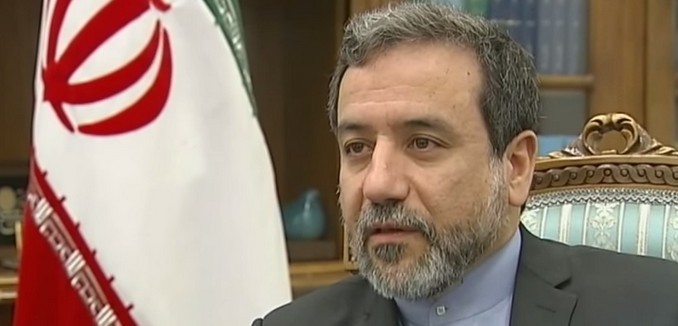In response to a report Sunday in The New York Times that Iran has announced that it is no longer willing to ship its enriched uranium stockpile to Russia, the State Department subsequently told the Times that the the final location of the stockpile has “not yet been decided.”
Previous reports had indicated that Iran was willing to reduce its number of centrifuges and ship out its enriched uranium to Russia for reprocessing. On Sunday night, Iran’s deputy foreign minister, Abbas Araqchi, said that “The export of stocks of enriched uranium is not in our program, and we do not intend sending them abroad….There is no question of sending the stocks abroad.” A Western official at the talks in Lausanne, Switzerland said that the fuel remaining in Iran would be diluted.
Dilution could mean either “downblending” of high-enriched uranium to low-enriched uranium (although the deal only applies to low-enriched uranium), or, more likely, that uranium would be converted into uranium oxide, a form from which it cannot be further enriched. However, the oxidization process can be reversed in the matter of a few weeks. If Iran does not ship its atomic fuel abroad, it would be able to create and have permanent access to multiple nuclear bombs’ worth of enriched uranium.
This feeds directly into the debate over breakout time, which is the time Iran would need to produce enough weapons-grade uranium for one nuclear weapon. The Obama administration has repeatedly insisted that in any deal with Iran, their goal would be to have a break-out period of at least one year. In a recent assessment, Olli Heinonen, former deputy director-general for safeguards at the International Atomic Energy Agency and now at Harvard University, wrote that not only is a one-year breakout time too short, but that given the number of centrifuges Iran is believed to be allowed to retain under an agreement, the breakout time will actually be around seven to eight months.
Ray Takeyh, a senior fellow at the Council on Foreign Relations, told the Times that this latest development caused skepticism about the agreement: “The viability of this agreement as a reliable arms control accord is diminished by this. One of the core administration arguments has been that the uranium would be shipped abroad as a confidence building measure.”
[Photo: Channel 4 News / YouTube ]




